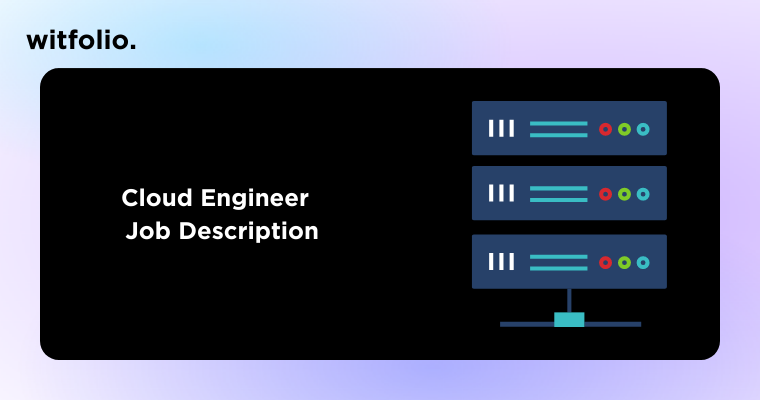A cloud engineer is a professional who works with cloud computing technology. They design, implement and maintain cloud-based systems for an organization. They are responsible for ensuring the cloud infrastructure is functioning optimally, monitoring and troubleshooting any issues that arise, and implementing new features as required.
Who is a Cloud Engineer?
A cloud engineer is an IT professional who specializes in designing, building, and maintaining cloud-based systems. They have expertise in cloud computing, networking, and virtualization technologies. They work with cloud platforms like Amazon Web Services (AWS), Microsoft Azure, and Google Cloud Platform.
Roles and Responsibilities of Cloud Engineer
- Design, build and maintain cloud infrastructure
- Develop automation scripts for cloud deployment
- Manage cloud security and compliance
- Monitor cloud infrastructure performance and optimize as needed
- Collaborate with other teams to ensure smooth functioning of cloud systems
- Troubleshoot and resolve any issues that arise in cloud infrastructure
- Develop disaster recovery and backup plans for cloud systems
- Implement new cloud features as required
Skills Required for a Cloud Engineer
- Strong knowledge of cloud computing technologies
- Proficiency in programming languages like Python, Java, or Ruby
- Expertise in cloud platforms like AWS, Azure, or Google Cloud Platform
- Knowledge of networking and virtualization technologies
- Experience in automation and scripting
- Strong problem-solving and analytical skills
- Excellent communication and collaboration skills
Qualifications Required for a Cloud Engineer
- A bachelor’s degree in computer science or a related field
- Cloud certifications like AWS Certified Solutions Architect, Azure Solutions Architect, or Google Certified Professional Cloud Architect
- Professional experience in cloud computing or related field
What Does a Cloud Engineer Do?
A cloud engineer is responsible for designing, building, and maintaining cloud-based systems. They work with cloud platforms like AWS, Azure, or Google Cloud Platform, and they have expertise in cloud computing, networking, and virtualization technologies. They develop automation scripts for cloud deployment, manage cloud security and compliance, monitor cloud infrastructure performance, and troubleshoot any issues that arise.
Final Word
Cloud computing is an essential technology for businesses, and the demand for cloud engineers has increased significantly. A cloud engineer is responsible for designing, building, and maintaining cloud-based systems. They have expertise in cloud platforms like AWS, Azure, or Google Cloud Platform, programming languages, networking, and virtualization technologies. If you are interested in pursuing a career in cloud engineering, consider obtaining cloud certifications and gaining professional experience in the field.
FAQ
Cloud engineering can be challenging due to its technical nature, but with proper training and experience, it can be a rewarding career option.
Yes, cloud engineers require coding skills to automate processes and manage infrastructure as code.
In India, the average salary of a cloud engineer is around 6-10 lakhs per annum depending on experience, skills, and company.
Yes, many companies hire freshers for cloud computing roles. Relevant certifications and training can increase the chances of getting a job.
Yes, a cloud engineer is an IT job that involves managing and designing cloud infrastructure for organizations.
No, AWS (Amazon Web Services) is a cloud computing platform, while a cloud engineer is a professional who manages and designs cloud infrastructure using different platforms, including AWS.
Yes, anyone can learn cloud computing regardless of their background. Relevant certifications and training can help in gaining expertise in the field.
Cloud engineers should have a good understanding of programming languages such as Python, Java, and Ruby. However, the language requirements may vary depending on the specific cloud platform used by the organization.
Disclaimer
This article is solely for educational purposes. Witfolio or its team doesn't take any responsibility for the information or claims made in the blog.
